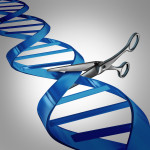An experimental vaccine failed to protect HIV-negative women from developing genital herpes, according to a statement by the National Institute of Allergy and Infectious Diseases (NIAID), which helped conduct the clinical trial.
Researchers had high hopes for the vaccine, which was designed to prevent infection with the virus most commonly associated with genital herpes—herpes simplex virus 2 (HSV-2). Manufactured by the pharmaceutical company GlaxoSmithKline (GSK), the vaccine had been tested in an earlier Phase II study in both HIV-negative men and women. While the vaccine failed to show any efficacy in men, it cut the development of genital herpes disease by 70 percent in women compared with a placebo.
In the current study, called Herpevac, 8,323 HIV-negative women between the ages of 18 and 30 were given either the herpes vaccine or a vaccine against hepatitis A virus. All of the women were confirmed to be free of both HSV-2 and herpes simplex virus 1 (HSV-1)—a strain that more commonly causes oral herpes—at the beginning of the study.
Though the herpes vaccine was found to be about 20 percent effective, this result was small enough statistically to have occurred by chance. Researchers are so far stumped by the result, but they hope to learn more.
“It is not known at this time why the vaccine proved ineffective, but the study collaborators continue to evaluate the trial data and intend to provide a more detailed analysis at a later date,” NIAID concluded.
Advertisement
Advertisement
Advertisement






Comments
Comments